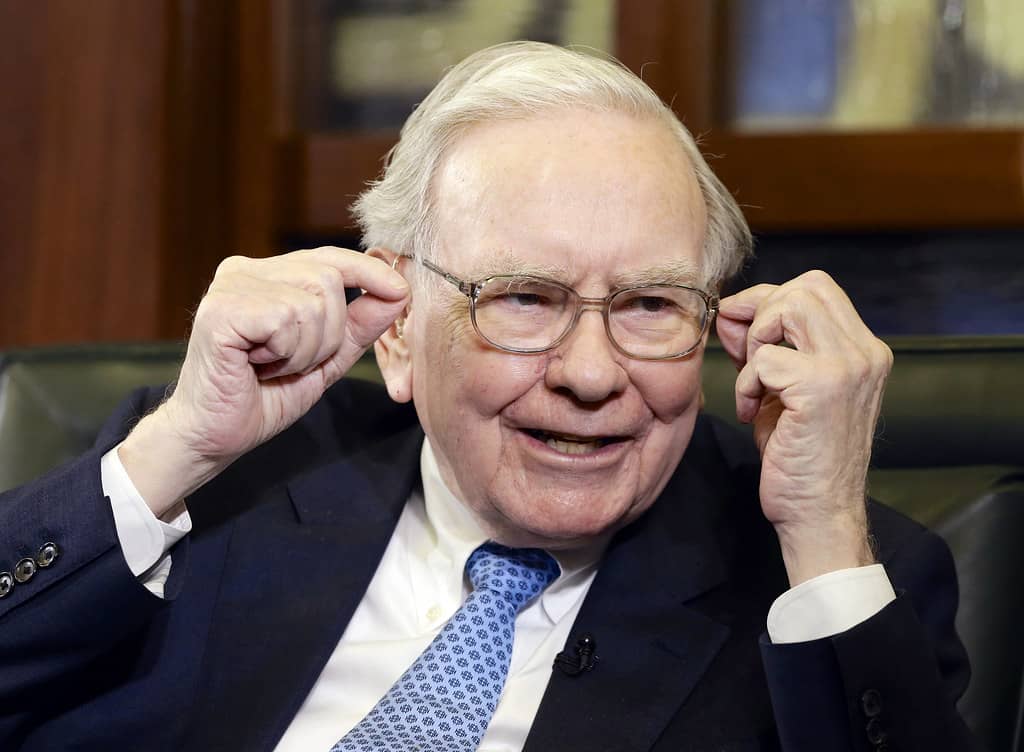Warren Buffett’s nickname: how he got it

Warren Buffett, the renowned American investor and business tycoon, is often referred to as the “Oracle of Omaha.” The nickname “Oracle of Omaha” highlights his remarkable success as an investor and his association with the city of Omaha, Nebraska, where he has lived and managed his company, Berkshire Hathaway, for many years.
Buffett’s investment expertise, business acumen, and long-term track record of success have earned him widespread admiration and respect in the financial world, and the nickname “Oracle of Omaha” is a testament to his reputation as one of the most successful investors of all time.
The nickname “Oracle of Omaha” was not given to Warren Buffett by a specific individual but rather emerged over time due to his reputation and success as an investor. The nickname likely originated from various media sources, financial journalists, and investors who observed Buffett’s remarkable investment skills and his long-term success in building Berkshire Hathaway into one of the world’s most successful conglomerates.
Buffett’s investment strategies, often characterized by value investing principles and a long-term perspective, have consistently delivered impressive returns over many decades. His annual letters to shareholders and media interviews have also contributed to his public image as a wise and insightful investor.
As a result of his achievements and the widespread recognition of his investment prowess, Buffett became associated with the nickname “Oracle of Omaha.” The term “Oracle” suggests a wise and prophetic figure with exceptional insights, and “Omaha” refers to the city where Buffett has been based throughout his career. Together, the nickname underscores his status as a revered and influential figure in the world of finance and investing.
Warren Buffett, affectionately known as the “Oracle of Omaha,” was born in 1930 in Omaha, Nebraska, into a family where the seeds of financial acumen were sown early. His father, Howard Buffett, was a stockbroker and later a U.S. congressman, a background that introduced young Warren to the world of stocks and investing at a tender age. Buffett’s fascination with numbers and money became apparent when, as a child, he undertook various entrepreneurial ventures ranging from selling chewing gum and Coca-Cola to delivering newspapers.
Buffett’s business acumen shone through even in these early ventures; he kept meticulous records of his earnings and expenses, showcasing a discipline and understanding of money that was beyond his years. His interest in the stock market burgeoned when he visited the New York Stock Exchange at the age of 10, marking a pivotal moment in his journey toward becoming an investment luminary.
Education played a crucial role in shaping Buffett’s investment philosophy. After initially being rejected by Harvard Business School, he attended Columbia Business School where he was mentored by Benjamin Graham, the father of value investing. Graham’s teachings, emphasizing the intrinsic value of stocks and the importance of a margin of safety, resonated deeply with Buffett and became the cornerstone of his investment approach.
Upon completing his education, Buffett worked for a few years at his mentor’s firm, Graham-Newman Corp, honing his investment skills and philosophy. However, the real turning point came when he returned to Omaha and started his own investment partnership. Buffett’s strategy of focusing on undervalued companies with strong potential for growth paid off handsomely. His reputation soared as he consistently outperformed the market, transforming his initial investment partnership into the conglomerate known today as Berkshire Hathaway.
Buffett’s rise from a young boy selling soft drinks to the most revered investor of our time is a testament to his unwavering dedication to understanding the market, identifying value, and adhering to a disciplined investment philosophy. His early life and subsequent ascent in the investment world are marked by a combination of innate talent, rigorous education, and an unrelenting commitment to his principles.
ChatGPT
Writer
ChatGPT is a large language model developed by OpenAI, based on the GPT-3.5 architecture. It was trained on a massive amount of text data, allowing it to generate human-like responses to a wide variety of prompts and questions. ChatGPT can understand and respond to natural language, making it a valuable tool for tasks such as language translation, content creation, and customer service. While ChatGPT is not a sentient being and does not possess consciousness, its sophisticated algorithms allow it to generate text that is often indistinguishable from that of a human.
